Fossil Specimens of Plants
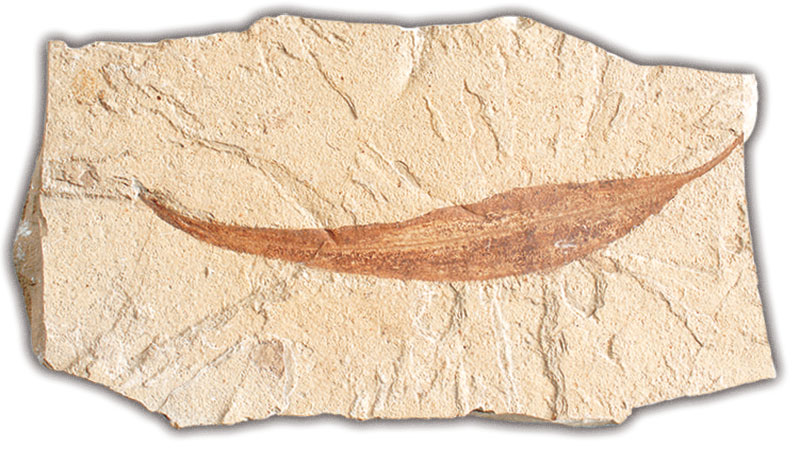 |
WillowPeriod: Eocene |
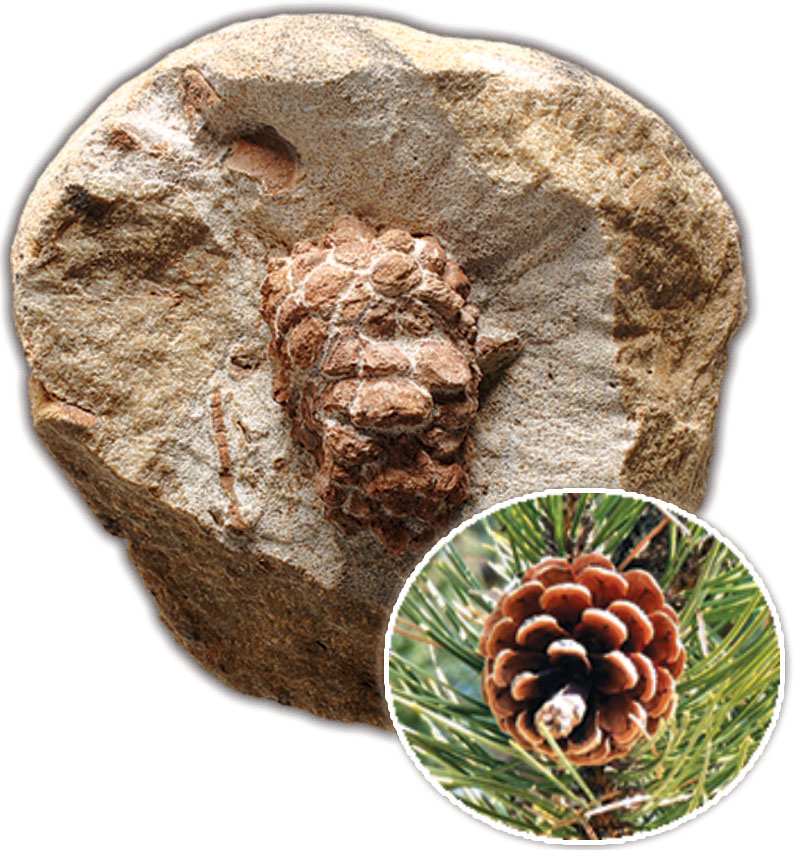 |
Pine ConePeriod: Early Tertiary The structure of cones, organs on conifers that contain the plant's ovaries, has remained the same for millions of years, as with the structures of all other living species. This cone, 65 to 23 million years old, and identical ones of our day are one of the important examples revealing that throughout these long ages, evolution has never occurred. |
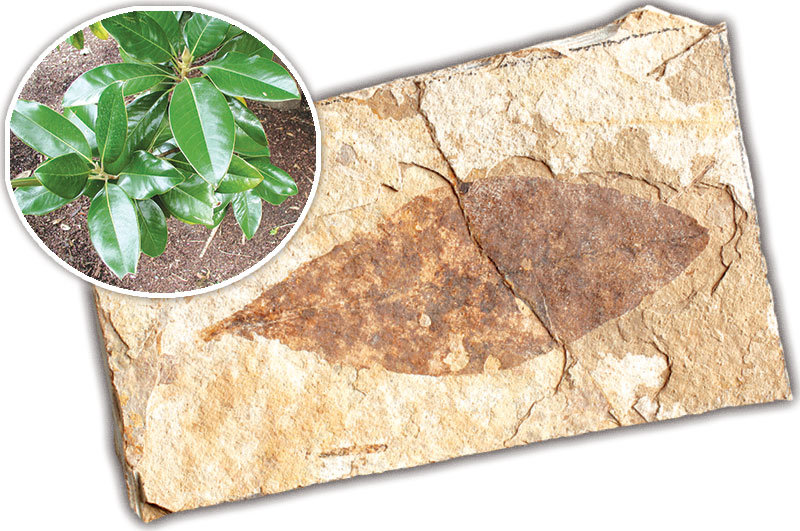 |
Magnolia LeafPeriod: Eocene Magnolia trees, with green leaves that do not fall in winter and with their delightful scent, have never changed and continue to be one of the Earth’s loveliest adornments. Had evolution really taken place, which it definitely did not, then life forms should appear gradually with small changes and should also continue to change. However, the fossil record shows the exact opposite. Different living classes appeared suddenlyin the fossil record, with no ancestors behind them, and have remained in a state of stasis for hundreds of millions of years. God created all living things. Fossil specimens dating back millions of years reveal this fact once again in the most flawless way. God is the sublime and almighty Creator of all things. |
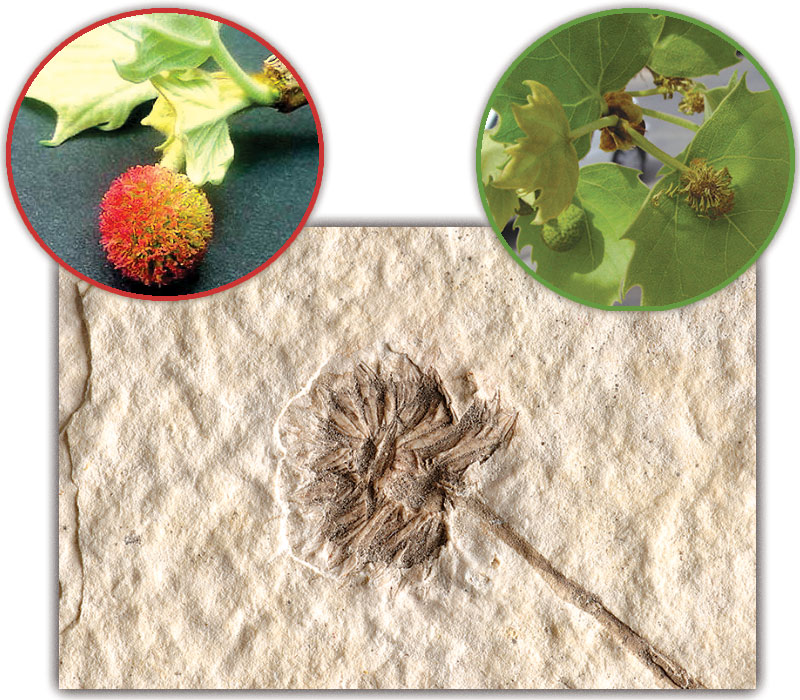 |
Sycamore Ranch with Seed PodsPeriod: Oligocene Evolutionists claim that plants originated from a common ancestor, yet they fail to offer a single scientific finding to prove it. On the other hand, innumerable findings show that plants were separately created, with features distinct to each species, and that they did not evolve. One of these is the 38- to 23-millionyear- old sycamore branch that fossilized together with its seed pods. This fossil, which is no different from the sycamores alive today, invalidates the theory of evolution. |
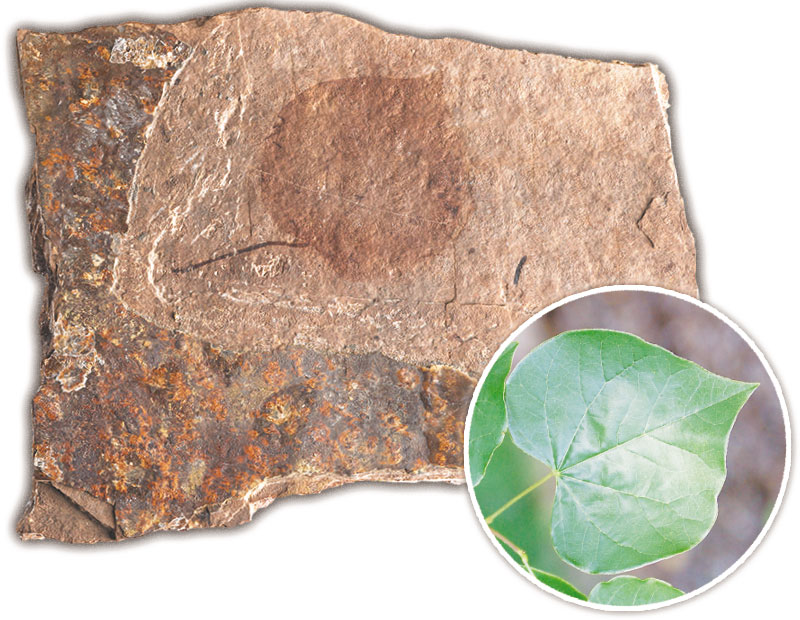 |
Redbud LeafPeriod: Eocene In terms of both general structure, and also when examined microbiologically, leaves can be seen to have highly detailed and complex systems planned in every way in order to provide the greatest energy production possible. In order to be able to manufacture energy, the leaf needs to receive heat and carbon dioxide from the external environment. All the structures in leaves are arranged in order that these two elements can easily be obtained. For example, leaves have broad surfaces and this facilitates the exchanges of gas necessary for photosynthesis (processes such as the absorption of carbon dioxide and the emission of oxygen). All plant leaves have had these features since the moment they first came into being and none has ever acquired them as the result of blind chance. God has created them with great wisdom, together with their wondrous properties. |
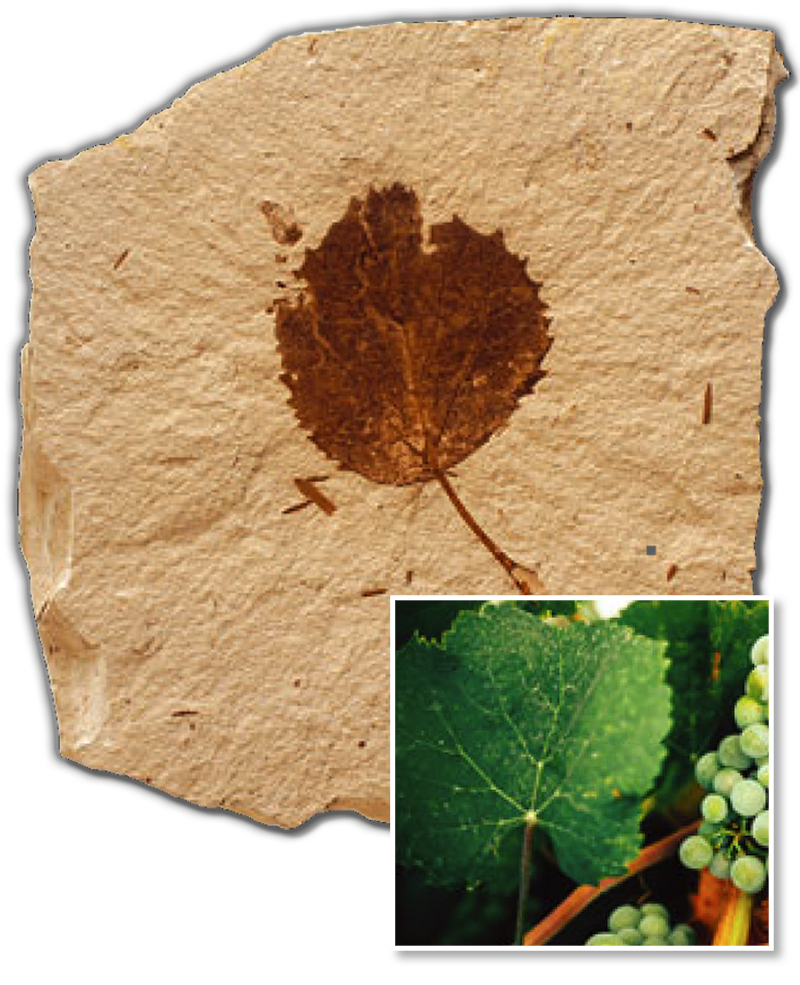 |
Grape LeafPeriod: Oligocene |
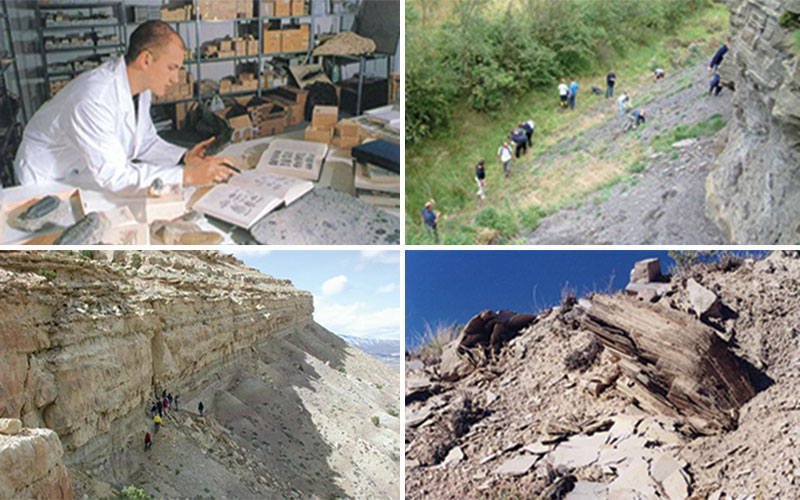 |
| Lancashire, United Kingdom |
| For the last 150 years, every corner of the Earth has been excavated in search of fossils, and millions of them have been discovered. But among all these fossils, there exists not a single half-developed specimen that possesses the features of two different living species—which can be termed an intermediate "missing link." Every fossil discovered so far reveals that living beings emerged all of a sudden and have never changed, as long as they did not become extinct. This has a clear implication: God created living beings. |
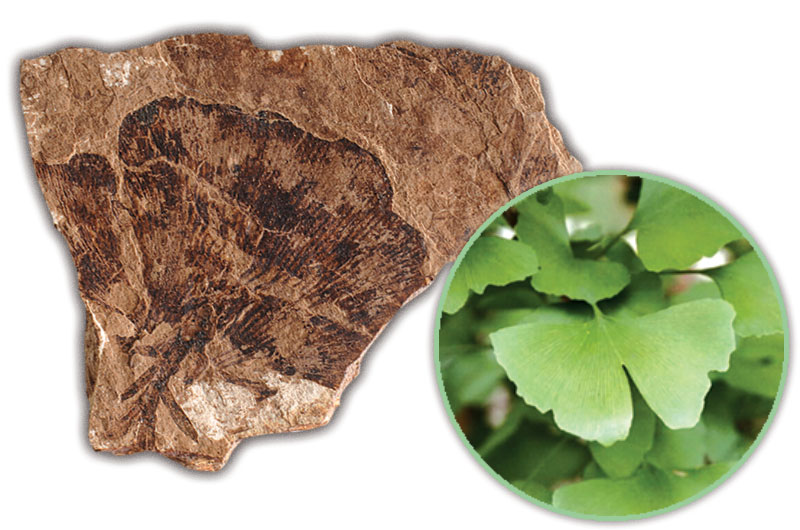 |
Ginkgo LeafPeriod: Paleocene Throughout history, turtles have remained as turtles, gnats have remained as gnats, ants have remained as ants and ginkgo leaves remained as ginkgo leaves. No matter how old a fossil ginkgo leaf we examine is, we see that it has the very same structure of today's ginkgos. The leaves are the very same, whether 50 million years old or hundreds of millions of years old. Like all other living things, the ginkgo has not undergone any changes and has not lived through any process of evolution. Each species is created in the same way with the superior artistry of our Lord. |
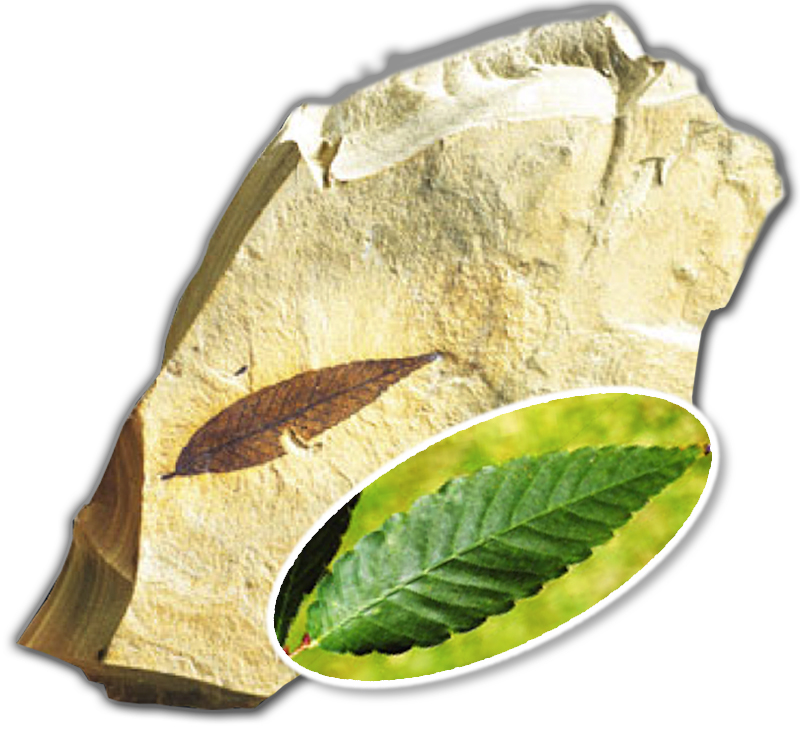 |
Zelkova LeafPeriod: Eocene The greatest dilemma facing the advocates of the scenario of plant evolution is how the first plant cell evolved. Then they have no answer to the question of how the first plant, and the thousands of species of plants alive today, formed from that first cell. Not one single transitional fossil exists to support the existence of such a process; there are no fossils with semi-developed organs or systems, and no evidence that one plant is the ancestor of any other. On the contrary, fossils show that every species of plant emerged suddenly with its own unique characteristics and never changed so long as the species survived. One of these fossils is this 46-million-year-old fossil elm leaf, which is identical to elm leaves today. |
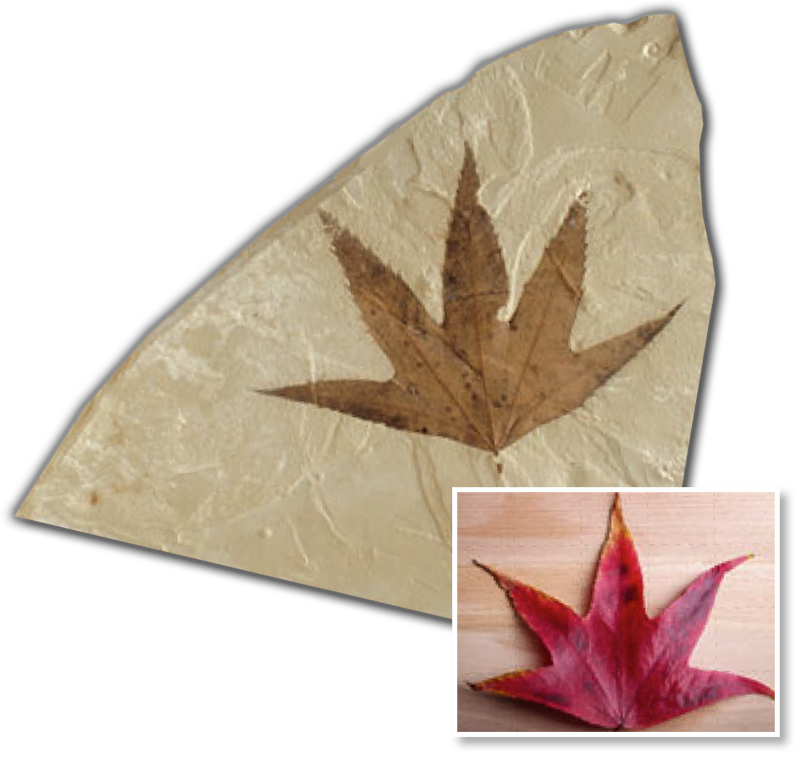 |
Sycamore LeafPeriod: Eocene Examining the fossil history and structural features of plants living on land, we come across facts that are incompatible with what the theory of evolution asserts. Plants shown in almost all biology books have no fossil records that verify the so-called evolutionary process. Most of today's species have left very satisfactory remains in the fossil records, and none of these shows any features confirming a transition from one species to the next. All are distinct species, created with their distinctive features in their original forms, and have left no transitional connections, as claimed. The 50-million-year-old sycamore leaf fossil in the picture also verifies this fact. |
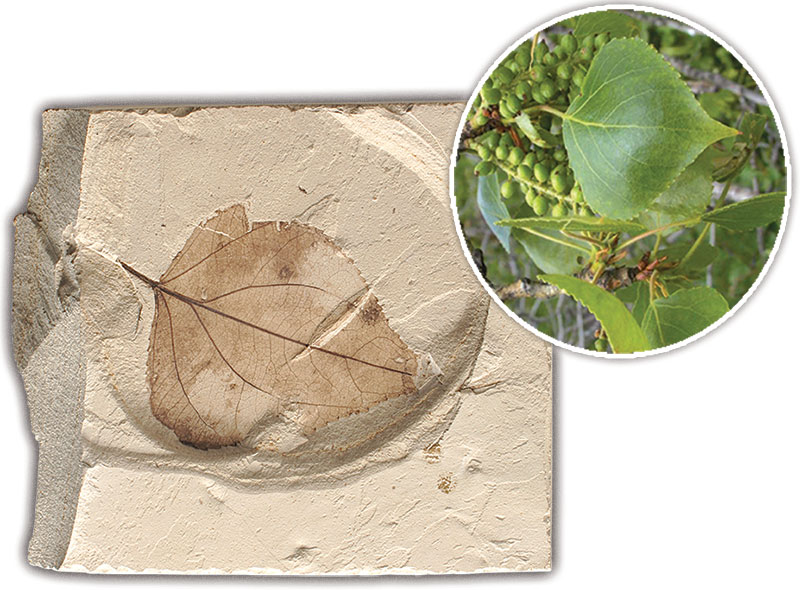 |
Poplar LeafPeriod: Eocene This fossil—which proves that poplars are not descended from any other plant, that they have no evolutionary forerunner and have always existed as poplars—is a proof of Creation. Poplars that lived around 50 million years ago are identical in every respect to present-day poplars, revealing that evolution is a figment of the imagination. |
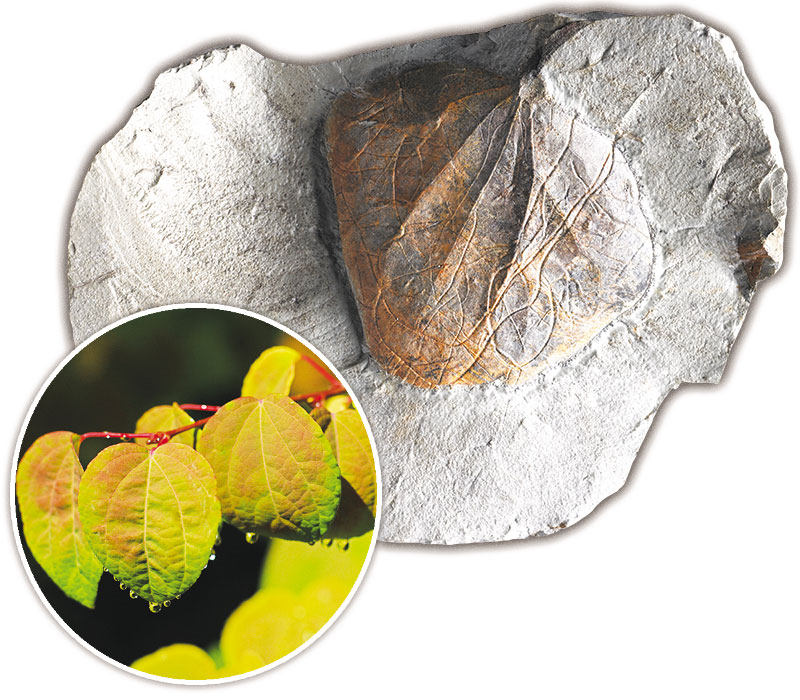 |
Katsura Tree LeafPeriod: Paleocene All the structures possessed by leaves are of vital importance. Flawlessly functioning systems like those in existence today need to be present all together for a plant to live and reproduce. These structures cannot, therefore, come into being gradually. All the fossil plants that have been found confirm that they have had the same perfect structures since plants first appeared on Earth. One of these is the 85- million-year-old katsura tree leaf, shown in the picture, which has come down to the present day with all its details preserved. |
 |
Sassafras LeafPeriod: Eocene One of the most familiar forms of Darwinist propaganda are groundless slogans along the lines of “Rejection of the theory of evolution is a dogma,” or “Denying the theory of evolution is unscientific.” In fact, however, such statements are preconceptions based on evolutionists’ biased conception of science. “Science,” according to the Darwinist definition, is not a discipline that researches, investigates and analyses its findings in a neutral manner and then accepts the results of those findings. According to Darwinists, scientific inquiries must first confirm their own beliefs and ideas and in the process, which findings must be interpreted by distorting them in line with evolutionist dogma. |
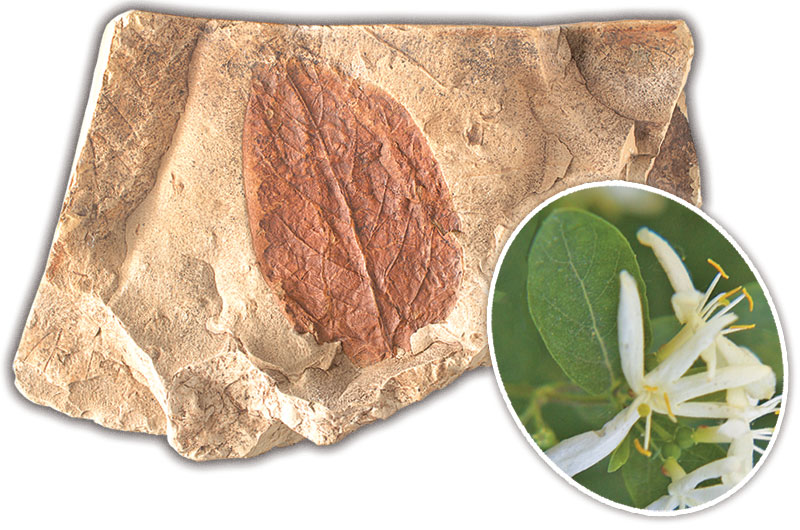 |
Honeysuckle LeafPeriod: Paleocene The absence of any differences between the 58-million-year-old honeysuckle leaf pictured here and those alive today is a sufficient response by itself to evolutionist claims. One of the major predicaments that confronts scientists espousing the scenario of plant evolution is the lack of even a single intermediate-form fossil. There are no "primitive" plant fossils with half-developed systems. To date, no evidence has been produced that one plant is the ancestor of any other. Therefore, family trees purporting to show the supposed evolution of plants are entirely imaginary, with no scientific basis to them at all. |
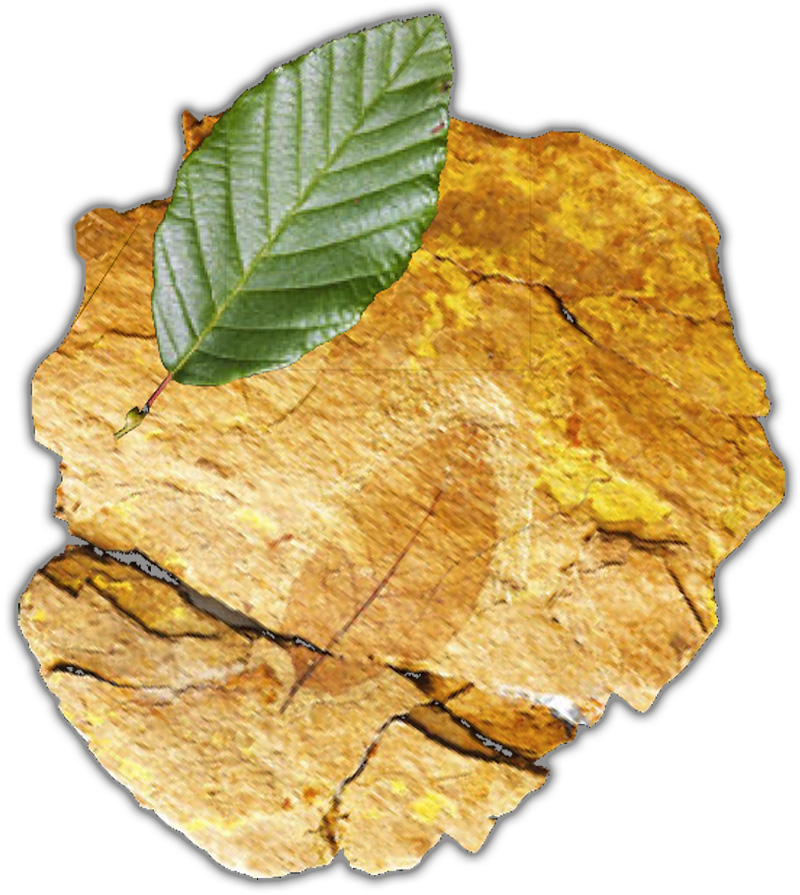 |
Alder LeafPeriod: Eocene Alder is the name given to trees from the species Alnus, members of the birch (Betulaceae) family. Various subspecies grow in Turkey. This 50-million-year-old fossil alder leaf, found in British Columbia, Canada, is concrete evidence that the gradual development claimed by evolutionists never happened. God created alders with the same appearance and features as they have today. |
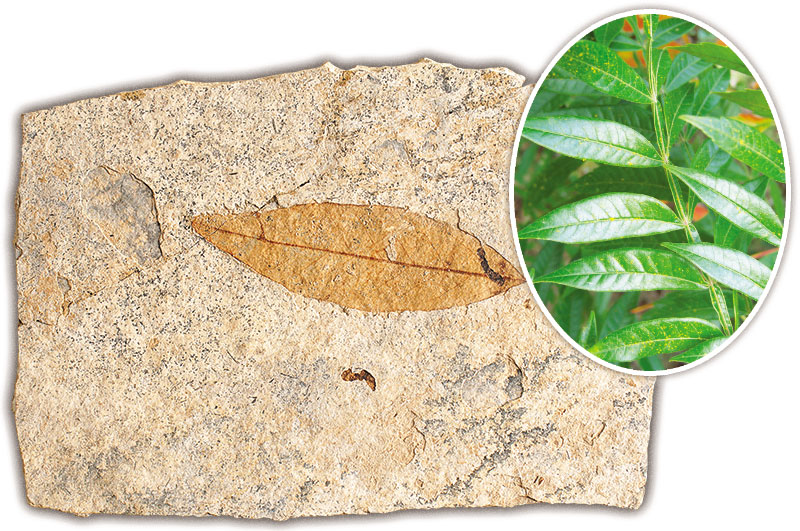 |
Sumac LeafPeriod: Eocene Plants have been making photosynthesis in the same way they do today for millions of years. They possessed hydraulic systems powerful enough to crack concrete, pumps that can raise water absorbed from the soil many meters in height and chemical factories that manufacture food for living things. Plants were created hundreds of millions of years ago. |
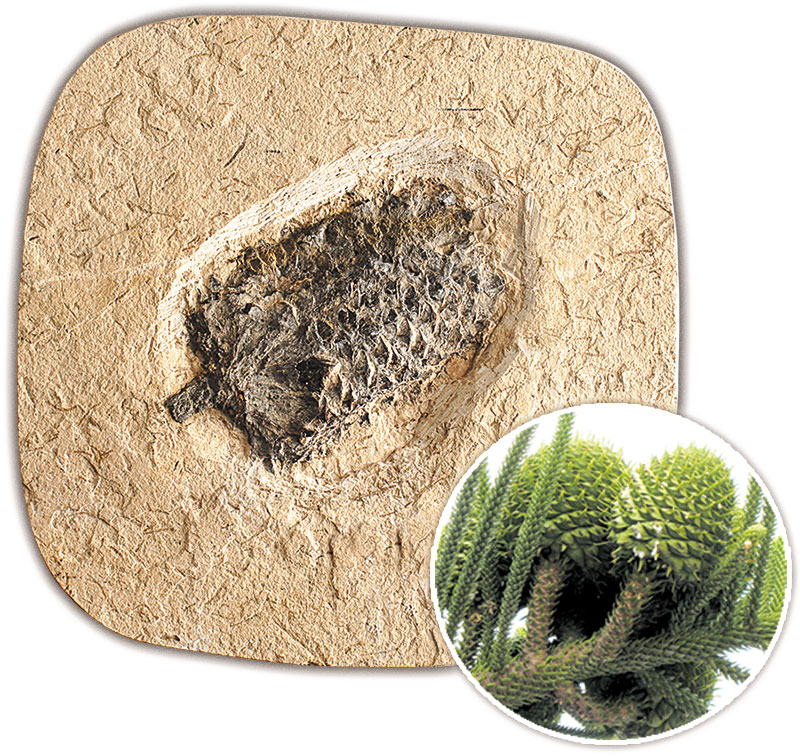 |
Auracarian ConePeriod: Cretaceous A huge number of very different species are living on the Earth. These life forms are equipped with ever more complex features that totally do away with Darwinism. Darwinists are totally unable to account for this; flawless fossils of these living things that have survived millions of years down to the present day leave them literally speechless. Fossils of living things that lived millions of years in the past show that living things never evolved and that the theory of evolution is devoid of any supporting evidence and a totally invalid theory. With their complex equipment and characteristics unique to their own species, living things that lived millions of years ago, and those living today, are all miracles created by God. |
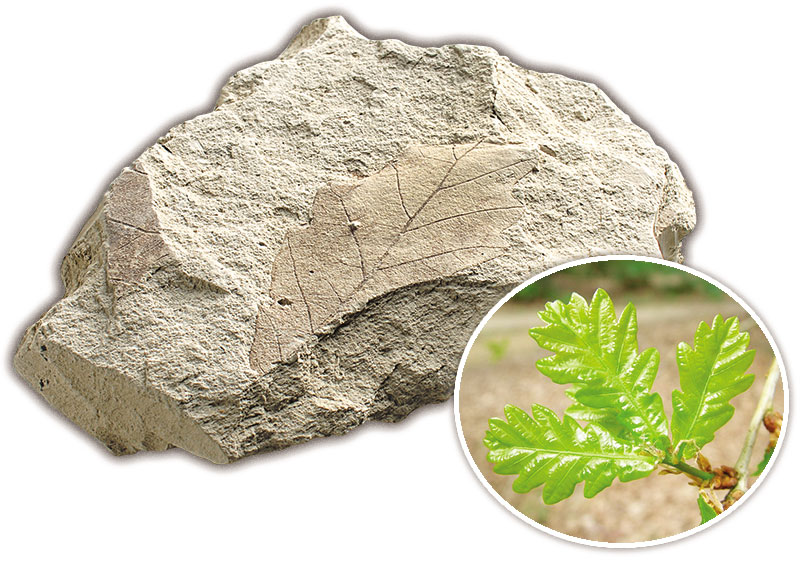 |
Turkey Oak LeafPeriod: Pliocene Plants are magnificent life forms, with photosynthesis systems that turn light into food and that constantly produce energy and oxygen, with mechanisms that cleanse nature and establish an ecological balance and aesthetic properties that speak to human beings, such as taste, smell and color. Today only some 10,000 species of plants, which have matchless systems for very beneficial purposes, have been studied; however, that research has shown that every plant possesses the most amazing features of creation. Evolutionists simply have no logical and scientific response to the question of howplants first appeared. As with other matters, the only account they can come up with for the existence of plants is purely imaginary scenarios. It is Almighty God, the Creator of the Earth and sky and all that lies between, Who creates plants. |
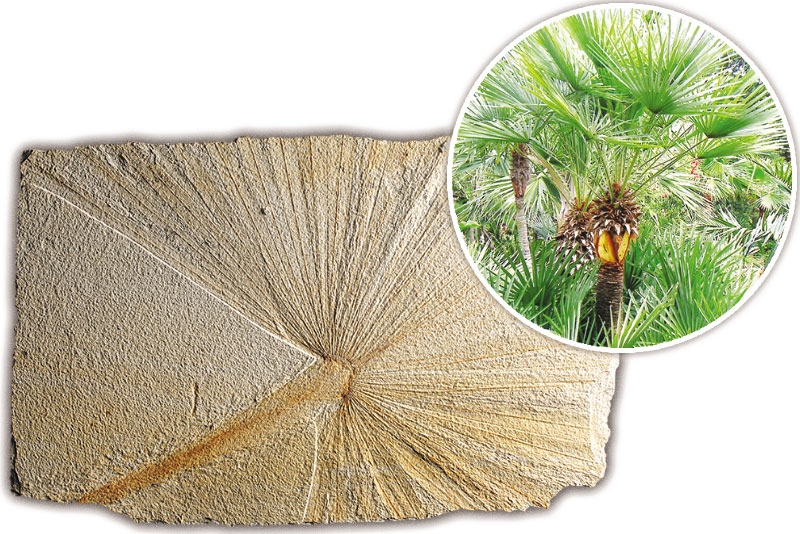 |
Palm LeafPeriod: Eocene Fossil research over the last 150 years has shown that the hopes of Darwin and the evolutionists who followed him were all in vain, and not a single transitional form fossil has ever been found. Today there are some 700 million fossils in thousands of museums and collections. All these fossils belong to species with their own unique characteristics, and that are completely distinct from one another. None of the half-fish, half-amphibian, or halfdinosaur, half-bird, or half-monkey, half-human and similar life forms that evolutionists sought with great expectations have ever been encountered. All the fossils unearthed, such as the palm leaf fossil in the picture, are findings that refute evolution. |
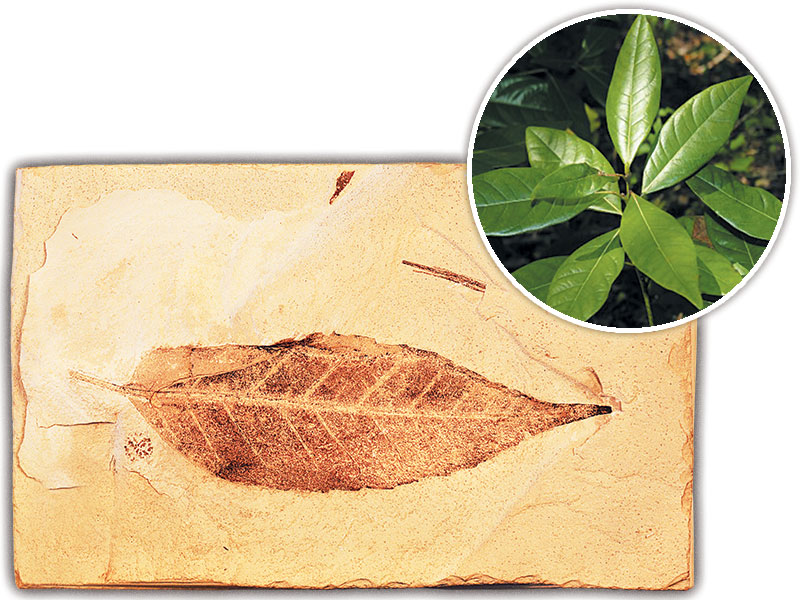 |
Persea LeafPeriod: Eocene The avocado is the best known member of this plant family of 150 species, whose leaves never fall. This 50-million-yearold fossil persea leaf is exactly the same as those living today. Neither animals nor plants gradually changed. They never evolved. God created all living things. |
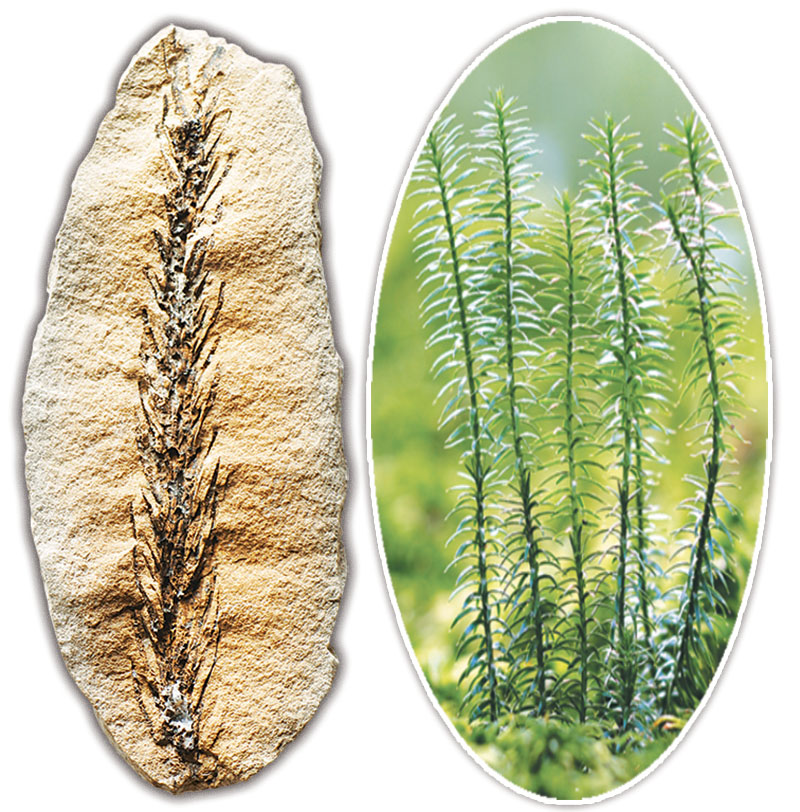 |
ClubmosslPeriod: Carboniferous This plant grows around tree trunks on the banks of rivers and draws on the water of the roots of the plant it clings to. All the features of clubmoss were the same hundreds of millions of years in the past as they are today. The 330-million-year-old fossil clubmoss in the picture is identical to clubmoss living today. |
- What is a Fossil? (1/2)
- What is a Fossil? (2/2)
- Fossil Records Refute Evolution
- Darwin Was Mistaken: Species Have Never Changed
- The Claim of Intermediate - form Fossils Is a Deception
- The Fossil Record Verifies Creation
- The Starting Point of Punctuated Equilibrium
- Cambrian Fossils and The Creation of Species
- "Missing Link Discovered" Headlines Are an Unscientific Deception
- Darwin's Illogical and Unscientific Formula
- Conclusion
- Fossil Specimens of Sea Creatures
- Fossil Specimens of Plants
- Fossil Specimens of Birds
- Fossil Specimens of Insects
